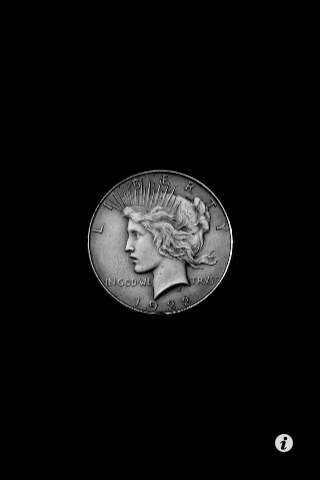


“I didn’t have a career in the performing arts,” Polotsky recalls, “but I had this new company that I’d started, so I begged them to let me into the course.”Īranyi and Thiers even let him focus his class project on his nascent company. I still remember a behavioral economics class I took with Schulz.” Polotsky also credits Michael Marasco, the former director of the Farley Center, and Heather Aranyi ’05 MMus and Genevieve Thiers ’04 MMus, who both teach through the Farley Center, for letting him enroll in Growing and Monetizing Your Fanbase, an entrepreneurship course for aspiring artists. “That liberal arts way of thinking is a great general skill set for business. “My econ major has helped me a lot, understanding markets and people,” he says. “We’re going to kind of see that 1997-to-2005 progression, probably in the next three to five years, and that will be the tipping point … as cryptocurrencies have more adoption, more use cases, more trust.”ĭespite the challenge of having been a full-time student and an entrepreneur, he credits his liberal arts education and the Farley Center for Entrepreneurship and Innovation for helping him develop the skills and the business acumen to get CoinFlip off the ground and up into the highest (digital) heights.ĬoinFlip’s ATMs allow customers to buy and sell Bitcoin, or any of the nine currently supported cryptocurrencies. He says cryptocurrency is currently in a similar growth stage as the internet was in the late 1990s. “A lot of people are comparing Bitcoin and cryptocurrency to how fast the Internet grew,” he says.

Polotsky says cryptocurrency may still be in its infancy but, like CoinFlip, is quickly growing in awareness and popular acceptance. CoinFlip has more than 2,000 ATMs available in 47 states (plus Washington D.C.), with plans to expand into the remaining three. Polotsky estimates revenue next year may be closer to $100 million off $1.5 billion in transactions. In 2021 CoinFlip was the fastest growing company in Chicago, according to the Crain’s Chicago Business’ annual Fast 50 list, with growth during the past five years at almost 2,000,000% (yes, that’s 2 million percent) and revenue last year of more than $50 million. CoinFlip takes a cash percentage of each transaction. Good luck talking to somebody at one of these online exchanges.”ĬoinFlip’s ATMs allow customers to buy and sell Bitcoin, or any of the nine currently supported cryptocurrencies. “I felt like a Bitcoin ATM would be the fastest, easiest way to get Bitcoin along with 24/7 customer support.
#Facade coin flip code
The other person would scan a QR code to access their digital ‘wallet’ and send them Bitcoin. “People were literally meeting up in Starbucks with one person throwing cash on a table. He immediately wanted to buy Bitcoin but ran into difficulty. In 2013 he was studying economics and Slavic languages and literature at Northwestern when he learned about cryptocurrency - a new kind of anonymized, often decentralized digital currency. … Northwestern was my first choice always.” I’d always go to football and basketball games. “Even when I was young, I would take Center for Talent Development classes. They moved to the northern suburbs of Chicago, and from the start, Polotsky says, he connected with Northwestern. Polotsky’s family immigrated to the United States from the Soviet Union in 1991. Northwestern and its support for entrepreneurial students helped make it all happen. Plus, Polotsky and his team have accomplished all this without taking any outside investment. Since then, the company has grown at a massive rate and now has almost 200 employees, including eight fellow Northwestern grads, and a new 44,000-square-foot headquarters opening in downtown Chicago’s Old Main Post Office building. “I just wanted to see if it would work,” he says. Polotsky launched CoinFlip from his Bobb Hall dorm room in 2015. “I remember taking customer support calls at Dillo Day” says Polotsky ’17, chief adviser and founder at CoinFlip.


 0 kommentar(er)
0 kommentar(er)
